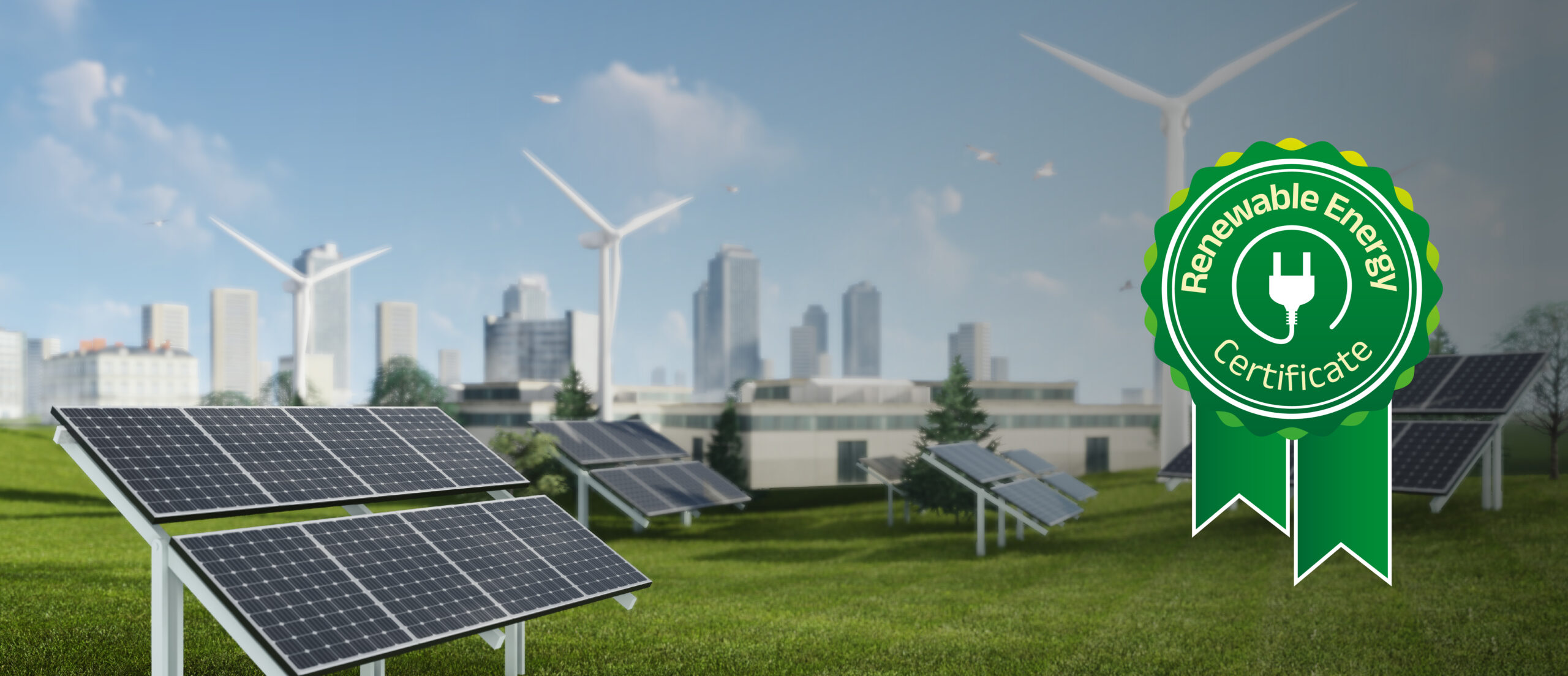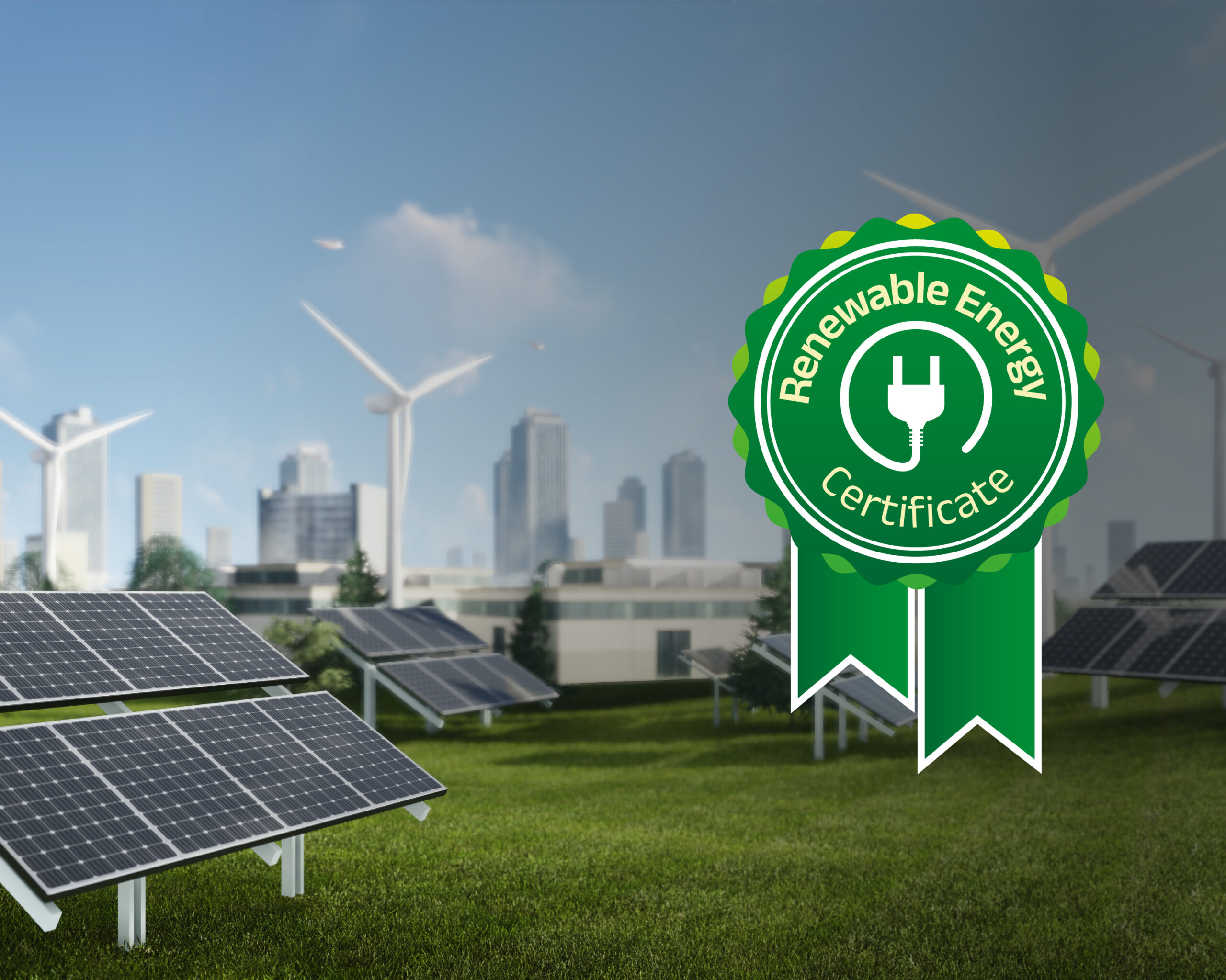As India moves towards a greener future, businesses are looking for ways to support clean energy. The initial cost of renewable energy plant installation is higher, which may not be easy for every business.
But what if you could promote renewable energy without installing solar panels or wind turbines yourself? Buying certificates for Renewable energy credits (RECs) is a simple and affordable way to support clean energy instead.
These certificates allow companies and organizations like Open Access consumers, distribution companies, and companies with Captive Power Plants (CPPs) to contribute to clean energy growth while meeting sustainability goals. Whether you are a business wanting to reduce your carbon footprint or a state fulfilling renewable energy targets, RECs offer a flexible and market-driven solution to fulfil your Renewable Purchase Obligations (RPO).
But What is REC(Renewable Energy Certificate)? and how exactly do they work? Let us explore the fascinating world of RECs and how they help shape India’s renewable energy future.
What is REC (Renewable Energy Certificate)?
Renewable Energy Credits also known as RECs are the certificates that prove electricity was made using clean energy like solar, wind, hydro, or biomass. They are also called Renewable Energy Certificates, again referred to as RECs and help promote the use of green energy. 1 REC is generated when 1 MWh power is generated using renewable energy sources and injected into the electricity grid.
- 1 REC = 1 MWh of renewable electricity generated and supplied to the grid
When a power plant produces electricity from renewable sources, it gets RECs, which can be sold separately from the electricity itself. This means that companies can buy RECs to support clean energy, even if they cannot generate it themselves.
Benefits and Importance of Certificates of Renewable Energy Credits for Businesses in India
Certificates for renewable energy credits in India help increase the use of clean energy and reduce pollution. RECs make it easy for businesses to support renewable energy without having to build their power plants. They are beneficial because:
- They encourage renewable energy production as power companies earn extra money by selling RECs, making it easier to build new clean energy projects.
- Businesses can buy RECs to meet their clean energy goals, even if they cannot use renewable energy directly. This helps them reduce pollution.
- In India, some companies must use a certain amount of renewable energy. RECs help them follow this rule simply and cost-effectively.
- Buying and selling RECs encourages more companies to invest in solar, wind, hydro and other clean energy sources, helping the renewable energy market grow.
- RECs help small producers as small energy producers can also sell their renewable electricity and earn more money through RECs.
- RECs help buyers to track the source and authenticity of RE generation.
How Many Types of RECs are there?
Now that you know What is REC?, let us explore their types. There are 2 types of RECs:
- SRECs or Solar RECs: The power plants that make electricity using sunlight get these certificates. One SREC is awarded for every 1,000 kilowatt-hours (kWh) (1 MWh) generated by a certified solar facility. Since solar energy is more expensive to produce, these certificates are usually worth more.
- Non-Solar RECs: These are given to power plants that make electricity using non-solar energy like wind, hydro, or biomass. As these energy sources cost less, these certificates are usually less valuable than solar RECs. They are generally traded at lower prices compared to solar RECs.
RECs can also be categorized based on market structures and usage:
- Compliance RECs
Used to fulfill mandatory renewable purchase obligations set by government regulations.
- Voluntary RECs
Purchased voluntarily by organizations or individuals to offset their carbon footprint, showcase environmental responsibility, or meet sustainability goals.
What is the Validity of RECs?
Renewable Energy Certificates in India are valid until redeemed, meaning there is no expiry under the current regulations by the Central Electricity Regulatory Commission (CERC) updated in 2022. This is valid for RECs generated post December 2022.
RECs generated before December 2022 are valid for 1095 days, that is 3 years from the day they are given. After 3 years, the certificates expire and cannot be used anymore.
Evolution of REC Validity (India-specific):
| Timeframe |
REC Validity |
| Before December 2022 |
3 years from the date of issue |
| After December 2022 |
No expiry (valid until redeemed) |
Who Issues RECs in India?
Renewable energy certificates are issued by the Central Agency, which is appointed by the Central Electricity Regulatory Commission (CERC). The National Load Despatch Centre (NLDC) is the Central Agency that gives RECs to power plants using renewable energy.
To get renewable energy credits in India a power plant must apply and follow certain regulations, like not selling electricity at special or fixed prices. Once they get the RECs, they can sell them on energy markets like the Indian Energy Exchange (IEX) or Power Exchange India Limited (PXIL).
Companies and groups can buy these RECs to support green energy projects or meet their Renewable Purchase Obligations (RPO).
How do Renewable Energy Certificates Work?
Renewable Energy Certificates (RECs) help support clean energy and reduce pollution. They make it possible for businesses and people to support renewable energy, even if they do not use it directly.
Power plants that use wind, solar, or water to make electricity earn RECs. For every 1 megawatt-hour (MWh) of electricity they produce, they get one REC.
RECs are checked and approved by special organizations to make sure they truly support clean energy.
Businesses and people can buy RECs to match the electricity they use.
Even if they get power from normal sources, buying RECs helps them support renewable energy.
This also helps businesses meet their purchase obligations related to clean energy.
Buying RECs means more money goes to wind, solar, and hydropower projects. This helps lower pollution and fight climate change.
When someone buys a REC, they can claim they used clean energy.
After that, the REC is “retired,” meaning it cannot be used again.
Specifications of RECs Framework
Here is a table to demonstrate the specification and framework of renewable energy credits in India:
| Name of Parameter |
Respective Details |
| Trading Platform |
Power Exchanges Only
|
| Categories |
Solar REC
Non-Solar REC |
| Validity |
1095 Days After Insurance.
|
| REC Denomination |
1 MWh
|
| Banking |
Not Allowed
|
| Borrowing |
Not Allowed |
| Transfer Type |
Single transfer through Power Exchanges only. Repetitive trade of the same certificate is not possible.
|
|
Price Guarantee
|
Through Floor Price (Minimum Price)
|
|
Non-Compliance Penalty
|
Forbearance Price (Maximum Price)
|
Who is Eligible for RECs?
For you to be eligible to generate renewable energy credits in India, you must fit under these criteria:
- Use of Renewable Energy: Electricity must come from natural sources like Sun, Wind, Water, or Biomass.
- No Special Pricing: The electricity cannot be sold under special deals or fixed prices set by the government. This helps keep the market fair.
- Connected to the Grid: The power plant must be linked to the main electricity system so the energy can be shared with everyone.
- Compliance with Regulations: The power plant must follow all the rules and regulations set by the electricity authorities to ensure everything is done correctly.
How Businesses Can Use RECs?
By using RECs, businesses in India can follow rules, save money, and help the environment while staying competitive.
Businesses can buy renewable energy certificates to balance out the non-renewable electricity they use. This helps reduce pollution and makes their work more eco-friendly.
- Following Government Rules
Some companies must use clean energy to follow government rules. RECs make it easy to meet these rules without changing their existing power setup.
- Building a Good Reputation
Companies that use RECs can show they care about the environment. This improves their image and makes customers and investors trust them more.
- Flexibility for Businesses
Businesses can buy RECs based on how much energy they use. If needed, they can buy more or less depending on their budget.
- Encouraging Green Energy Projects
When businesses buy RECs, they support wind, solar, and other clean energy projects. This helps India grow its renewable energy sector.
How to Register your Business for generating RECs?
If your business wants to take part in the renewable energy credits in India system, follow these steps:
- Get Accredited: First, your business must be approved as an eligible entity. This applies to renewable energy power plants, companies generating their own green electricity, and certain energy consumers.
- Register Your Business: After accreditation, register with the official REC system. This involves submitting required documents and meeting government rules.
- Generate RECs: Once registered, your renewable energy plant can start earning RECs. For every 1,000 units (1 MWh) of renewable electricity sent to the grid, you will receive one REC.
- Trade RECs: Sell your RECs in the REC market, which operates twice a month. Other businesses buy them to meet their renewable energy obligations.
- Maintain Records: Keep track of all REC transactions for audits and compliance. This ensures transparency and proper reporting.
- Stay Updated on Rules: Government policies on renewable energy credits in India may change, so stay informed about pricing, eligibility, and other updates.
- Engage with Stakeholders: Work with renewable energy developers, regulatory bodies, and industry experts to maximize the benefits of the REC system.
By following these steps, your business can successfully implement RECs, support green energy, and potentially earn additional revenue.
The Role of Sunsure Energy Role in Your Green Journey
By working with Sunsure, your company can enjoy long-term savings, attract eco-friendly customers, and lead in environmental responsibility. Our solutions are designed to help you switch to 100% renewable energy without the hassle.
- Customized Green Energy Plans: Sunsure creates unique mixes of solar, wind, and battery storage to provide steady and reliable green power for your business.
- Access to RECs: We help you get these special badges (RECs), so you can show your commitment to clean energy and meet your environmental goals.
- Expert Guidance: Sunsure offers advice on energy trading and managing your renewable energy certificates, making your path to sustainability smooth and easy.
Key Takeaways
In a world where clean energy is more important than ever, renewable energy credits in India serve as a powerful tool to support sustainability. They bridge the gap between clean energy producers and businesses or individuals who want to invest in a greener future.
By purchasing RECs, companies meet regulatory requirements, reduce their carbon footprint, and contribute to India’s renewable energy market.
With increasing awareness and demand, RECs are set to play a key role in accelerating India’s transition to a cleaner, more sustainable energy grid. Every REC purchased is a step toward a cleaner and greener tomorrow!
Subscribe to our newsletter




